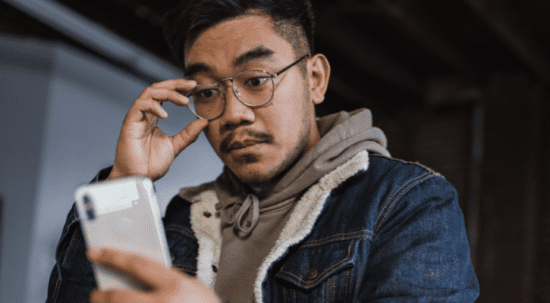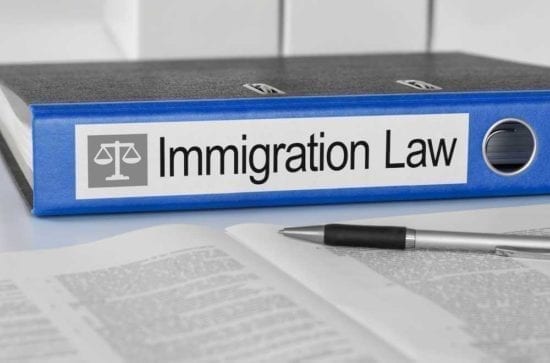了解身份
在美国,每 13 个成年人中就有 1 个认为自己是 LGBTQ+。这包括各种性取向和性别认同:
- 女同性恋者:在情感、浪漫或性方面被其他女性吸引的女性。
- 同性恋:通常指被其他男性吸引的男性,但也可指被同性或同性伴侣吸引的男性和女性。
- 双性恋:对男性和女性都感兴趣的人。
- 跨性别者 (trans):性别认同与出生时指定的性别不同的个人。
- 酷儿:包括异性恋或性别认同以外的任何性身份和性别认同。顺性别指的是认同自己出生时被指定的性别的人。
- 质疑者:探索自己的性取向或性别认同的人。
- 加号(+):代表其他性身份和性别认同。示例包括:
- 双性人:天生具有不同性别特征和生理结构差异的个体。
- 无性恋者:没有性吸引力,但仍可能有恋爱关系的人。
- 非二元性别者:不完全认同自己是男性或女性的人。他们可能会使用“他们/她们”这样的代词。
- 泛性恋:对所有性别认同的人都有吸引力的人。
承认和尊重每个人的身份非常重要。您可以礼貌地询问对方喜欢的姓名和称呼。了解更多单词和术语会有所帮助。
LGBTQ+ 移民
美国有 130 万 LGBTQ+ 成年移民,占所有移民的 3%。许多人来到美国是为了获得更多的权利和自由,可以自由地生活和自由地去爱。
LGBTQ+ 移民仍然面临着独特的挑战,例如由于语言障碍,他们获得的资源有限,以及有时在自己的社区内不被接受。
LGBTQ+ 权利
无论性取向或性别认同如何,每个人都应该感到安全和受到尊重。 如果您是 LGBTQ+,您拥有与美国其他任何人相同的基本权利。
虽然联邦法律提供了一些针对基于性取向或性别认同的歧视的保护,但各州和地方的法律却各不相同。歧视是指因为某人的身份而不公正地对待他们。在许多州和城市,在工作场所、住房和教育方面的歧视行为都是违法的。然而,并非所有州都有这些保护措施。了解您所在地区的法律非常重要。
基本权利
- 健康护理:您有权获得医疗服务。即使您拥有这项权利,歧视仍然会发生,尤其是针对跨性别者。每个人都有获得紧急医疗救助的权利,即使您是 LGBTQ+ 或无合法身份。查找信息和支持。
- 工作场所:联邦法律保护人们在工作场所免受基于性取向或性别认同的歧视。雇主不得骚扰您或询问您的 LGBTQ+ 身份。一些州和一些城市提供具体的保护措施。如果您是 HIV 阳性者,您有权在工作中获得合理的便利。
- 住房:联邦法律保护 LGBTQ+ 人群免受住房歧视。房东不能询问您的性别认同或性取向,并且必须尊重您选择的名字和称呼。
- 学校:联邦政府要求公立学校禁止歧视 LGBTQ+ 学生和家庭。应该保护学生不因表达自己的性别认同而受到骚扰和欺凌。这包括威胁、戏弄、恐吓和暴力行为。
认识更多有关移民权利。
在美国寻求政治庇护的权利
如果您因 LGBTQ+ 身份在本国面临迫害,您可以在美国申请政治庇护。您必须在抵达美国后的一年内提出申请,您可以将配偶也包含在申请中。寻求庇护者往往面临复杂的移民问题,因此寻求法律帮助非常重要。
拘留中心的权利
被关押在拘留中心的 LGBTQ+ 移民往往面临更高的虐待风险。跨性别移民遭受性侵犯的风险很高。您在拘留期间享有基本权利,包括接受医疗治疗和法律咨询的权利。如果您受到虐待,可以拨打 855-448-6903 向 ICE 总部举报,或向 CRCL 投诉。
州权利
一些州为 LGBTQ+ 人群提供了比其他州更多的权利。您可以查看这张地图,了解哪些州有更好的保护措施。研究各州内有关地方保护和社区支持的具体地区。
同性婚姻
您有权与同性伴侣结婚。这在美国 50 个州和华盛顿特区都是合法的。法律将保护你们的同性婚姻,并提供与异性伴侣相同的法律权益,例如:
同居伴侣关系
在某些州,如果您和同性伴侣同居但未结婚,您可以申请同居伴侣关系。这可以帮助您获得某些福利,比如加入伴侣的医疗保险计划。
亲属移民
如果您是美国公民或绿卡持有者,您可以为您的配偶申请来美国与您团聚。如果您是美国公民,您还可以申请未婚夫/妻签证,让您的伴侣来美国与您结婚。
了解有关亲属移民流程的更多信息。
收养和寄养儿童
您有收养和抚养儿童的权利。在这一过程中,一些州比其他州提供了更好的免受歧视的保护措施。
跨性别证件权利
您可以合法更改某些身份证件上的姓名和性别。这包括 ID 卡和其他反映您性别认同的文件。根据您所在的州,您还可以选择更改出生证明等文件上的姓名和性别。了解有关更新 ID 的流程。
美国公民及移民服务局 (USCIS) 不再接受性别变更。他们现在将 只列出某人的性别为男性或女性。
寻找帮助和社区
许多组织为 LGBTQ+ 人群提供各种免费服务和支持。如果您的权利受到侵犯,您可以寻求帮助进行举报。
组织结构 |
免费服务 |
发送电子邮件至 [email protected] 以帮助举报歧视行为 |
|
按城市和州寻找 LGBTQ+ 健康诊所 |
|
查找 LGBTQ+ 中心 |
|
举报工作中的歧视 |
|
机密法律信息、援助和推荐 |
|
咨询法律问题 |
|
为 LGBTQ+ 移民查找服务 |
|
一般法律信息和资源 |
|
保密的同伴支持 |
|
查找对 LGBTQ+ 群体友好的健康护理 |
|
通过表格或帮助热线获得法律帮助 |
|
为低收入 LGBTQ+ 和 HIV+ 移民提供法律服务 |
|
关于出柜和家庭接纳的多语言信息 |
|
为跨性别者提供法律帮助,包括姓名和性别更改服务 |
|
对 LGBTQ+ 友好的医疗服务提供者 |
|
为移民拘留中心内的人员提供支持 |
|
紧急搬迁和支持计划 |
|
寻求保护的法律服务 |
|
洛杉矶地区的法律和住房服务 |
|
为 LGBTQ+ 青年提供自杀和危机干预 |
|
法律帮助和移民资源 |
|
同伴支持电话服务 |
如果您正处于危机之中,您可以拨打支持热线或发短信寻求帮助。
庆祝 LGBTQ+
六月是骄傲月,或称Pride。Pride是一个展现 LGBTQ+ 群体的庆祝活动。在Pride期间,人们庆祝 LGBTQ+ 的权利、历史和成就。Pride 有许多活动,如游行、节日和聚会,以建立社区和提高认识。
彩虹旗在美国很常见。这面彩色旗帜是 LGBTQ+ 自豪感的象征。它在“骄傲月”以及全年展示,以显示与社区的联盟。
本页信息来自 ACLU, ILRC, Rainbow Railroad, Human Rights Watch, 和其他可信来源。 我们的目标是提供简单易懂、定期更新的信息。 本信息并非法律建议。


